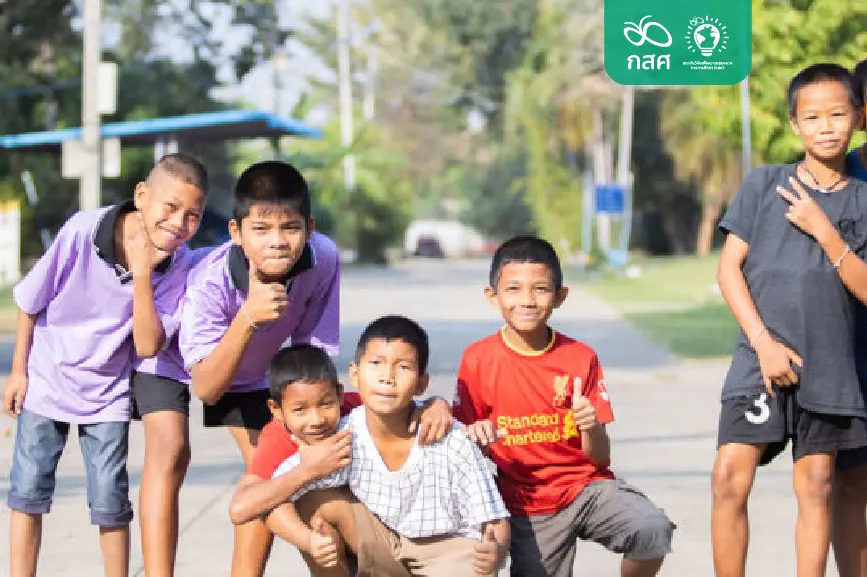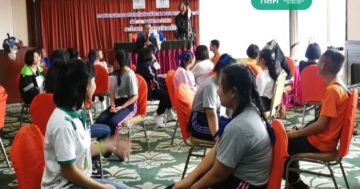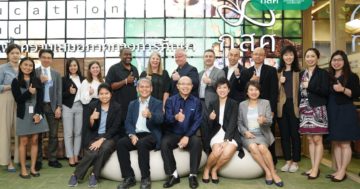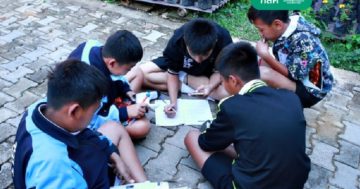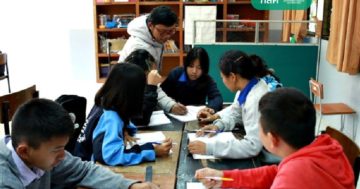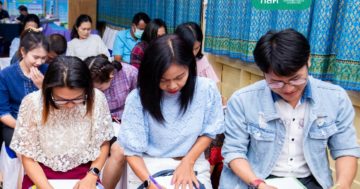Area-based education management Project for Educational Equality
Objective
This project aims to provide care in ‘Early childhood groups’ and ‘non-formal education groups’ before expanding to other target groups in the future by collaborating at the local and provincial level with the provincial administrative organization (PAO). This project is based on the information and academic cooperation of the relevant departments at the provincial level.
Why should it be ‘Early Childhood Groups’ and ‘Non-formal Educational Groups’ before other groups?
This project aims to provide care in ‘Early childhood groups’ and ‘non-formal education groups’ before expanding to other target groups in the future by collaborating at the local and provincial level with the provincial administrative organization (PAO). This project is based on the information and academic cooperation of the relevant departments at the provincial level.
‘Non-formal education for children, adolescents and youth’
Between the ages of 3-17 years, the population at this age is about 16.2 million. However, there are children, adolescents and youth from this population in ‘Non-formal education’. These are approximately 0.59 million people, representing 4.14 percent. If taken as numbers, it may not look like much but the educational inequality should be resolved. Due to the impact of non-formal education, it causes economic damage at least 330,000 million baht per year. The Equitable Education Fund (EEF) therefore considers it important for children, adolescents and youth who should be equally educated.
The project of development tools to assess the readiness in children, adolescents and youth of entering the labor market.
As the world entered the fourth industrial revolution era, various technologies became more intelligent until the event happened ‘No need for people’ at work anymore. Thailand has entered Thailand 4.0 era, but the readiness of new graduates and workers is not skilled enough to meet the needs of labor markets.
It is therefore necessary to create a ‘tool’ to assess the readiness of ‘children, adolescents and youth’ in entering the labor market so that students are well-informed about their job readiness, ability to do the job, and job searches. Because of getting to know the chosen ‘occupation’ that they want, it will also help motivation to study, decrease the dropout rate, reduce work that does not match the educational background. The Career Readiness Survey tool is created to assess the readiness for children, adolescents and youth and to provide information to local government officials and national agencies.It can also be used to formulate strategic plans and integrate cooperation between departments in order to adjust the educational direction to meet the needs of the labor market, promote education to ‘Equality’ and ‘sustainable development’ in the creation of human resources and eventually escape Thailand from the middle-income trap.
SDG4
Sustainable development goals on education
Sustainable development goals on education SDG4 in Thailand arose from the 70th session of the UN General Assembly, which aims at education in Thailand. At this meeting, it was set to be the 4th goal (SGD4), which is ‘equal education’, with an emphasis on the development opportunities and the quality of educational management. This ensures that everyone has a comprehensive quality and equality in education and supports lifelong learning opportunities.
The Equitable Education Fund (EEF) has conducted research, knowledge development and various tools to explore and assess the readiness of human resources in 76 provinces in order to understand the progress of children, adolescents, youth and new-age workers, have basic information for planning, implementing, and managing possible problems to be suitable for the context of that province. The Equitable Education Fund (EEF) has information to promote and encourage the relevant agencies, including the target group to be more effective, and then use this information to report progress in implementing the sustainable development goals on education. (SDG4)
